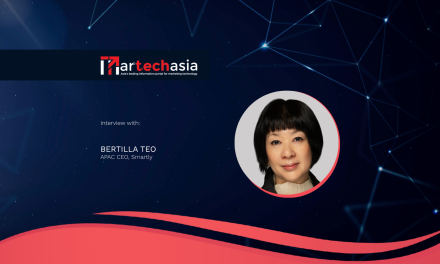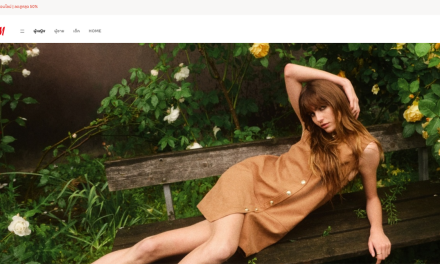Find out the key findings of the Yahoo APAC Metaverse Survey to help brands and marketers understand consumers’ expectations of the metaverse, including its key avatars, assets, and elements.
Metaverse has become popular with the next-generation internet development, capturing the attention of businesses and consumers because of its promising, personalised and immersive experiences. But there’s so much to learn about metaverse, including what consumers anticipate from brands interested in exploring and implementing marketing campaigns in this rapidly evolving digital world.
Yahoo recently released the Yahoo APAC Metaverse Survey to help brands and marketers understand consumers’ expectations of the metaverse, including its key avatars, assets, and elements. This is the largest APAC metaverse consumer study, with more than 15,000 consumer participants between 13 and 65 years old and at least 1,000 respondents per market, across Singapore, Hong Kong, Japan, Taiwan, Australia, and New Zealand.
APAC’s Metaverse Generation
The study showed that the metaverse awareness and interest is there among APAC Millennials and Gen Z. These populations make up the “Metaverse Generation,” wherein the “Singapore Metaverse Generation” is the early adopters because of higher interest in gaming and non-fungible tokens (NFTs) than their APAC peers.
The study revealed that 73 percent of APAC consumers are already aware of the metaverse. About 66 percent of Millennials and Gen Z in the region are looking forward to the world of metaverse. These user groups have surprising differences in the things they expect from this digital space and their perception of avatars, virtual social communities, creative freedom, and immersive entertainment.
Zoe Cocker, Yahoo’s Director of Innovation and Creative Studio, said, “There has been a lot of hype about the potential of the metaverse, but very little is known about what consumers expect. This study has powerful signals for marketers on what users care about — the building blocks to connect with core audiences/niche consumer groups in the metaverse.”
She also added, “The report uncovers the heart of the metaverse for consumers by country. This hyperlocal level of detail and insights goes beyond wider trends you are seeing in the press, making them actionable for brands wanting to build in this space and create real value for divergent audiences.”
Five Key Findings from The Yahoo APAC Metaverse Survey
Here are the key findings crucial for brands and marketers exploring the metaverse space:
- Millennials and Gen Zs Want Different Things from the Metaverse
Because these user groups want different things from the metaverse, marketers must tailor or personalise their approaches toward the Metaverse Generation. Gen Zs look forward to building social metaverse connections to become rich, realise their dreams, and break traditional norms and rules. They highly regard diversity and equity; everyone must have equal opportunities and treatment in the metaverse.
Marketers must know the important things that matter to Gen Zs, such as virtual communities, to build social circles in the virtual world, which is far different from the real world. They’re interested in digital avatars because they want to reveal their uniqueness and meet new friends using their avatars. Moreover, Gen Zs want “full customisation,” with the freedom to create their own characters, items, and spaces.
On the other hand, millennials want the metaverse to enhance and upgrade their experiences, wherein they can innovate, diversify, enrich human connections, and create life-like interactions. Marketers and brands must be able to create immersive experiences to capture their attention. Marketing campaigns must have the element of life-like interactions for entertainment. Marketers can use digital avatars to facilitate these interactive, life-like experiences. The findings also show that Millennials are open to the virtual world’s economic activities and transactions.
- Millennials and Gen Zs Think Differently about Digital Avatars
Gen Zs create digital avatars to express their uniqueness or “true appearance” whereas millennials prefer avatars “completely different from their appearance,” with large-scale enhancements.
Marketers must understand that free creation is vital for Gen Zs. The study revealed that “customisation” is the most significant factor for more than 90 percent of Gen Zs, when creating avatars. On the other hand, millennials’ avatars include using or wearing real-world branded apparel and accessories, and their avatars have enhanced skills they lack or don’t have in real life.
- Digital Asset Appeal
According to the Yahoo survey, one-third of Gen Zs and Millennials in the region have embraced virtual collectibles. About 31 percent of the APAC metaverse generation have already studied NFTs, and about 9 percent have purchased NFTs.
When creating gamification and other marketing campaigns, marketers can use gaming goods, limited-edition cards, music pieces, artworks, and other types of NFTs. Because the Metaverse Generation has a great interest in NFTs, they find them more of an investment. NFTs allow them to become a member of a group and give them access to an exclusive community. As compared to other countries in the region, consumers in Singapore and Hong Kong are most interested in NFTs, wherein 14 percent have made NFT purchases.
- Metaverse Brands
Yahoo also found that APAC consumers are highly receptive to brands that use the metaverse in advertising and marketing campaigns. Almost 60 percent of the metaverse generation want to know more about a metaverse-affiliated brand and pay more attention to its products and events. Therefore, the earlier a brand connects to consumers in the metaverse, the quicker it’ll be to gain sales and marketing opportunities and become more appealing to them.
- An Accessible and Safer Metaverse
The metaverse generation is also concerned about data safety and security in the virtual world. About 62 percent of APAC consumers are concerned about online fraud and fake things in the metaverse. Safety and privacy pose top concerns among the metaverse generation, with 61 percent saying it would be more difficult to protect personal information and privacy in the metaverse. Moreover, the absence of legal and moral norms is also a concern for 57 percent of respondents.
APAC consumers also consider accessibility. They cite “not having the technology” and “too expensive” as top barriers that hinder them from joining the metaverse. Hence, marketers must ensure accessibility, transparency, and user protection to address consumers’ concerns. These Yahoo report findings tie together APAC experts’ analysis and views, creating a more comprehensive insights for marketers in the region.
Gaming is also an essential aspect of the metaverse for the Singapore Metaverse Generation. About 54 percent of millennials and 53 percent of Gen Zs in Singapore have already played immersive open-world video games, including Minecraft, Fortnite, Sandbox, and Roblox. These games allow the metaverse generation to explore, interact, and create personal spaces. They rank “more immersive gaming experiences” as one of the top metaverse aspects they look forward to.



















